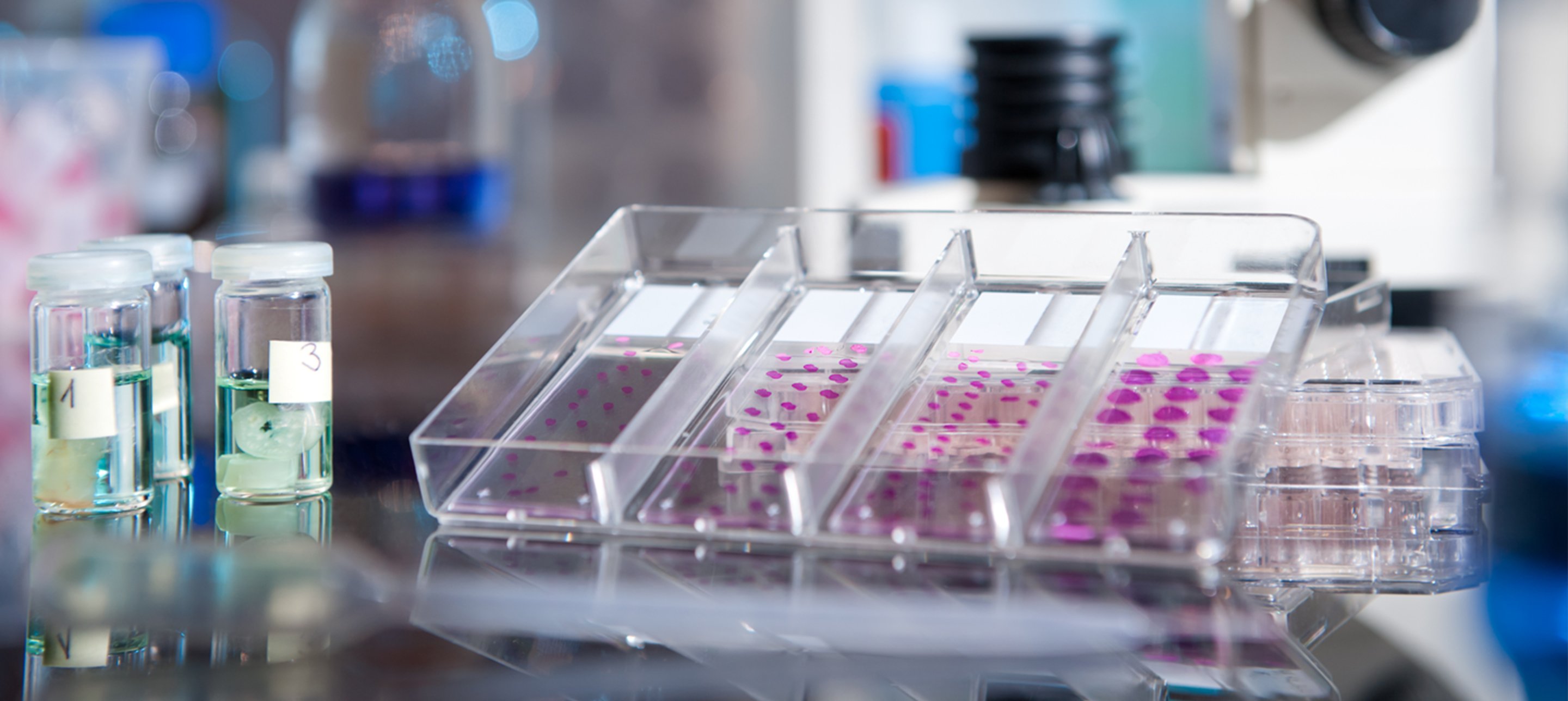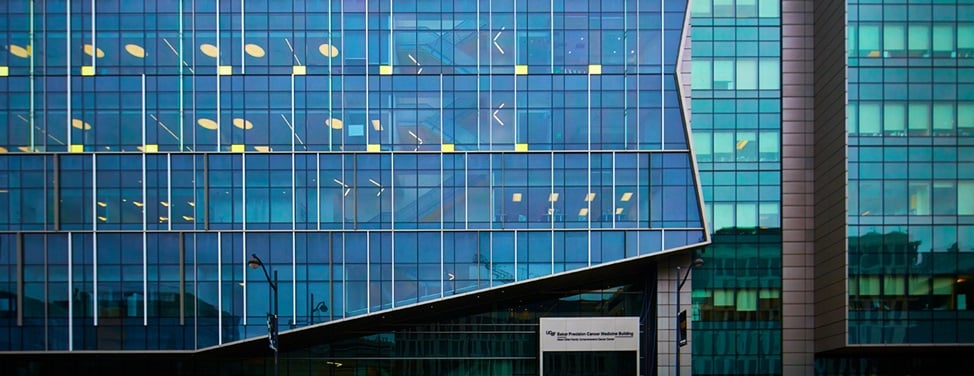
Biopsy for Breast Cancer Diagnosis: Magseed and Needle (Wire) Localization
If a mammogram or breast ultrasound reveals an abnormality that can't be felt, your doctor may suggest using either magnetic seed or needle (wire) localization to guide a biopsy of the suspicious tissue. In these procedures, a marker is placed by the area of concern to help the surgeon pinpoint and remove it. Both are two-step outpatient procedures (meaning you won't stay overnight in the hospital).
Preparing for your procedure
If you've had mammograms at another institution in the past five years, you must bring the images to your appointment. To get them, call the facility where the test was performed and ask for a printout of the film images (not a CD). Your UCSF radiologist will compare the older images with the images we take during the procedure to help with interpretation.
If you take medications or supplements, ask your doctor whether you should stop taking them before your procedure. This includes over-the-counter drugs, such as aspirin, and herbs used for health purposes.
On the day of your appointment, please follow these guidelines:
- Don't apply any powder, deodorant, lotion or perfume under your arms or on your breasts. Substances in these products can appear in the images and make them harder to interpret.
- Wear two-piece clothing (separate top and bottom), so you only have to remove your top and bra for the examination.
- Don't wear jewelry unless it can be quickly and easily removed.
- Arrive 20 minutes before your appointment to allow time for registration and changing.
- Tell your doctor if you may be pregnant.
You may be asked to complete a short breast health questionnaire when you arrive.
Magnetic seed localization (Magseed)
A Magseed is a magnetic stainless-steel bead the size of a rice grain. It's used to mark the location of suspicious breast tissue and can be placed up to 30 days before the biopsy procedure. At UCSF Health, Magseeds are placed by radiologists who specialize in breast imaging.
Step 1: Find the abnormal tissue
This step takes place in our radiology department, where the radiologist uses mammography or ultrasound to guide placement of the Magseed. If ultrasound is being used, you'll lie on your back with one arm over your head. The technologist will place cushions under the arm to help you stay comfortable. If mammography is used, you'll be seated or standing.
Once the suspicious tissue is pinpointed with imaging, the radiologist cleans your breast and injects numbing medication. The injection may sting for about 15 to 30 seconds.
The radiologist then uses a thin, hollow needle to insert a Magseed into the suspicious tissue, guided by additional images. The insertion site is covered with an adhesive bandage.
Most women feel pressure or pulling but not pain. Please tell your radiologist or imaging technologist if you experience any concerning symptoms.
Once the Magseed is placed, we perform a gentle mammogram (with only light compression) to confirm it's in the right spot.
Step 2: Biopsy the abnormal tissue
This step takes place in an operating room. Once you're under anesthesia, the surgeon uses a handheld magnetic probe to locate the Magseed and remove it, along with the suspicious tissue. The specimen is sent to the radiology department to confirm that the targeted tissue was removed, then to a pathologist to determine whether it's cancer.
Needle (wire) localization
Needle localization (also known as wire localization) is another method for marking suspicious breast tissue for biopsy. At UCSF Health, it's used less frequently than Magseeds.
Both steps of this procedure are performed on the same day.
Step 1: Find the abnormal tissue
This step is performed in our radiology department, where the radiologist uses mammography or ultrasound imaging to pinpoint the abnormal tissue and guide placement of the wire. If ultrasound is used, you'll lie on your back with one arm over your head. The technologist will place cushions under the arm to help you stay comfortable. If mammography is used, you'll be seated or standing.
Once the suspicious tissue is pinpointed with imaging, the radiologist cleans your breast and injects numbing medication. The injection may sting for about 15 to 30 seconds.
Next, the radiologist inserts a hollow needle through your skin to reach the abnormal tissue, then threads a thin wire through the needle to the identified site. The wire has a small hook on the end to hold it in place. Imaging is performed again to ensure the wire is placed correctly, and the wire is securely taped in place. The wire remains in your breast until the biopsy is performed later that day.
During this process, most women feel pressure or pulling but not pain. Some feel faint or dizzy. Please tell your radiologist or imaging technologist if you have any concerning symptoms.
Step 2: Biopsy the abnormal tissue
During this step, the abnormal tissue is surgically removed. The procedure is called an excisional biopsy and takes up to an hour.
You'll be brought by wheelchair from the radiology department to a surgical suite. Family or friends may be with you before and after the wire placement but not during the biopsy.
Once you're under anesthesia, the surgeon will follow the wire to locate the suspicious tissue and remove it. The tissue is then sent to the radiology department to be X-rayed, allowing the surgeon and radiologist to confirm its removal. Finally, it is sent to a pathologist to determine whether it's cancer.
For some women, the biopsy causes discomfort, swelling and bruising; these side effects subside in a few days. Your breast's appearance is unlikely to change significantly, though you'll have a small surgical scar. You'll also feel some lumpiness near the incision, due to scar tissue. Your surgeon can probably tell you in advance where the scar will be located.
Risks and recovery
Both wire and Magseed biopsy procedures are usually well tolerated. Any discomfort is typically relieved with over-the-counter pain medications, such as Tylenol (acetaminophen), and most patients return to their normal activities the following day. Be sure to follow your care team's instructions on which activities to avoid while you heal, how to care for the incision and which medications to take for pain.
There's a slight chance of infection or excessive bleeding after these procedures. Please call Breast Imaging or the Breast Care Center immediately if you experience any of the following symptoms:
- Swelling that doesn't go away
- Continued bleeding
- A fever above 101 degrees Fahrenheit (38.3 degrees Celsius)
- Pain that doesn't respond to acetaminophen or other non-aspirin pain relievers
UCSF Health medical specialists have reviewed this information. It is for educational purposes only and is not intended to replace the advice of your doctor or other health care provider. We encourage you to discuss any questions or concerns you may have with your provider.










